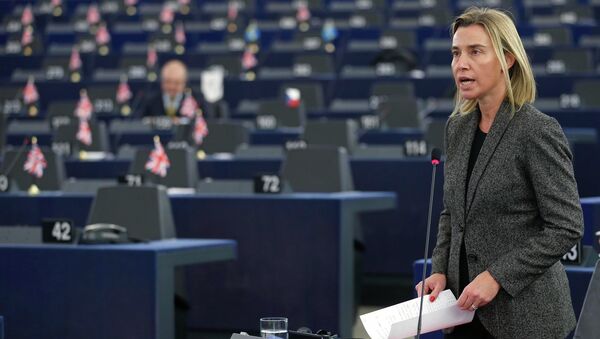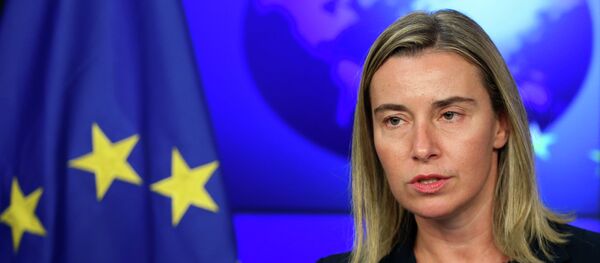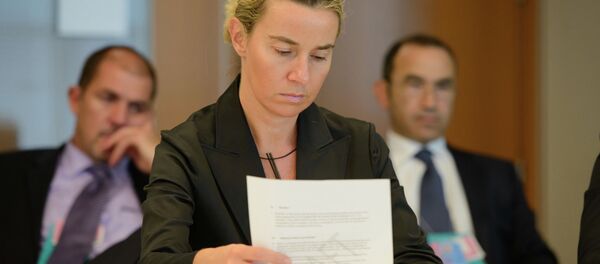“We [the EU] discussed also the issue of trade relations with Russia, that is part of the reflection,” Federica Mogherini stated, adding that this was the reflection of the eastern partners as well.
She stressed the complexity of the issue, which includes sanctions on Russia and counter sanctions.
“I think that we would need to commonly work on that on a framework that is a little bit larger than only bilateral issues,” the EU’s representative explained. “The problem might go even beyond the issue of Ukraine as there is a certain number of issues with WTO [World Trade Organization] that need to be solved in that framework.”
Mogherini, who is on her first visit to the United States since taking office, stressed that while EU keeps pressuring Russia through sanctions, they are flexible, could be “scaled up and down,” and that there must be a room for conversation.
“Towards Russia, we share a twin track approach, based on sanctions, in view of Moscow’s illegal annexation of Crimea, and also in view of its role on the conflict in the East of Ukraine, while keeping the door open for the dialogue, both on the solution of the conflict in Ukraine and on the common global challenges we face,” she explained.
Since some of the anti-Russia sanctions are expiring in March, the EU foreign policy chief underlined that the EU would have a different set of decisions based upon the evidence of the Minsk agreement implementation, as well as the situation on the ground.
She noted that so far the progress in the Minsk protocols has been made only in hostage exchange.
Mogherini noted that the EU dialogue with Russia on the global issues, such as fight against terrorism, Iranian talks and climate change has never stopped, but stressed that they could do more on that.
Mogherini claimed that Moscow's role in solving the Syrian, as well as regional crises will not be sufficient, as so far there has not been much achieved except the chemical weapons destruction.
“I’m not saying this is going to be one of the fields where regional cooperation or political dialogue actually with Russia is going to bring us anything good, necessarily and immediately, if ever,” she stated. "I think it’s far too early to say there might be cooperation with Russia on that."
Relations between Moscow and EU deteriorated since the beginning of the military conflict in Ukraine in 2014. The EU accused Moscow of interfering in Ukraine’s internal affairs and imposed several rounds of sanctions against Russia. Moscow continuously denied the allegations and responded with a ban on agricultural produce from EU countries.




